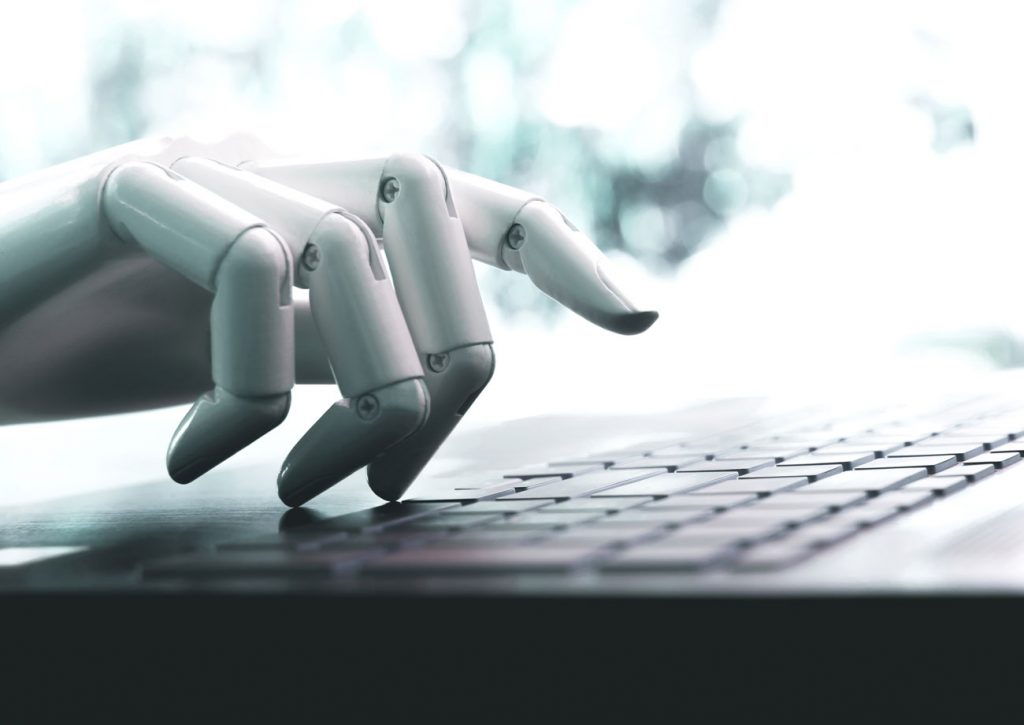Artificial intelligence is no longer part of the science fiction genre. It is a reality, and a successful industry of its own, too. The debate around machines that think is well alive, with many who argue in its favor, and many others arguing against it. Leaving the sociological and philosophical implications aside, the implications of AI in business are rather favorable and optimistic.
Scientists, researchers, and business people altogether hold high expectations for the further development and application of AI in business. There are detractors, too, who state that artificial intelligence will end up replacing humans, especially within factories and assembly lines. However, such a scenario seems to be far from what might actually happen. According to the Harvard Business Review, implementing AI in business will generate more jobs for humans.
In order to really understand the possible impact of AI in business, we need to discuss what exactly AI is, what are some possible benefits, and examples of existing AI technologies in use by different companies nowadays.
What Exactly Is Artificial Intelligence?
We can define artificial intelligence as a branch of computer science that aims at creating autonomous machines. The main goal of AI is to emulate and imitate the workings of the human brain as accurately as scientifically possible. The website nibusinessinfo.co.uk highlights several key cognitive skills that an AI system should be able to perform. Such skills include learning, reasoning, problem-solving, visual perception, and language understanding.
Like we mentioned above, artificial intelligence is a reality now. There are different systems and apps that are already implementing such technology. As a matter of fact, there are plenty of examples of AI that we already use in our daily life. Some examples include virtual personal assistants like Siri or Cortana, which use the information you provide to analyze and eventually anticipate your needs. Other examples include video games like Call of Duty and Far Cry, smart cars, and fraud detection technology.
Seeing that artificial intelligence is a reality, and already comprises many of our daily activities, finding the proper application of AI in business shouldn’t be hard. There are several companies that implement AI for decision making, like Google and Microsoft. Besides, AI can be particularly helpful for industries that handle huge amounts of data. Banks and financial institutions use credit card fraud detection systems to accurately block cards that the owners are not using.
Its Impact on Customer Experience
By analyzing data that already exists, AI systems can have a positive impact on your customers’ experience. AI can provide personalized shopping experiences online, and automate customer interactions, too. They can also provide real-time assistance and customer support without clients even realizing it. Other benefits include operational automation, outcome prediction, and even improving recruitment processes.
As we mentioned above, AI in business is a reality, and many companies are already taking advantage of such technology. One obvious example is that of Amazon. They use AI technology that analyzes every item you search, the ones you add to your cart, and the ones you actually buy. By analyzing this information, its system is able to create an “online persona”, and then show you related items you might want to purchase.
Chatbots, the New Customer Assistants
Another example can be the implementation of chatbots that provide customer assistance online. As they can access huge amounts of data in a fraction of a second, chatbots are key to improve the customer experience. This brings a lot of benefits, as chatbots might become more cost-effective than actual humans behind a computer answering questions. However, this particular case brings the question of whether AI will end up replacing humans or not. Most supporters of AI state it wouldn’t eliminate jobs, but actually, create more. The answer might depend on the industry and type of job, maybe. The truth is, AI in business is here to stay, and it definitely carries more advantages than the possible risks it may have.
